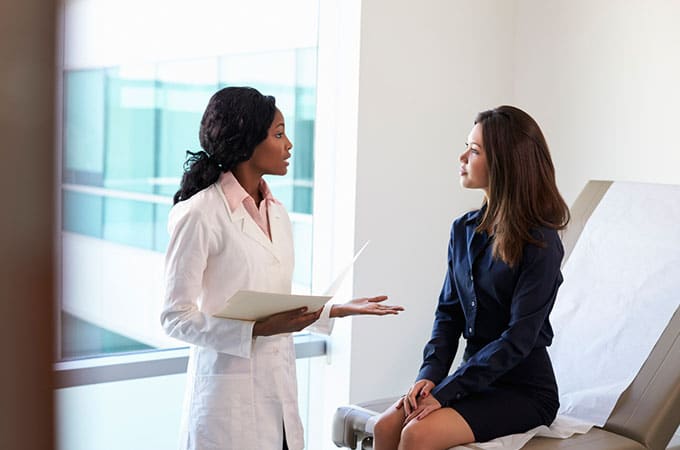Egg donors make motherhood possible for many women who are unable to use their own eggs to conceive; helping more than 5,000 patients become parents through egg donation. The Egg Donor Program at SGF values each donor and her choice to donate in hopes of helping a couple. We also know that the egg donation process can seem intimidating and egg donors want to be informed about the process. At SGF, egg donors are our patients and we want to help our donors feel confident in their care.
Our Egg Donor Team receives many questions about the egg donation process but most questions surround the medications used during the egg donation process and the potential side effects.
Stimulation Cycle
Did you know that your body produces a certain number of egg follicles each month? Naturally, your body only recruits one egg each month for ovulation; as our donor nurse Kathleen Shumake likes to say, the “queen bee.” The rest of the follicles that “stood in line” (so to speak) are not used and your body naturally discards them during your next menstrual cycle. With the stimulation process, instead of your body recruiting just one and denying the rest, we will grow, stimulate, and “keep” all the egg follicles on your ovaries and retrieve all of them. We encourage follicle growth through self-administered injections of fertility medications.
We know that administering injections, mixing medications, and handling needles are tasks most of egg donor patients have never experienced before. During you Donor Day orientation SGF offers its egg donors a hands-on injection training lesson lead by a member of our nursing team. During this lesson, a nurse will educate you about injectable medication self-administration and provide you with additional resources. When it is time for you to administer your medications, you can request an additional lesson from your nurse or use our online library of injection videos.
What are the risks of egg donation?
The Egg Donor Program at SGF has been performing egg retrievals for over 15 years. Through our experience we know that some egg donors want to be educated about the risks.
Ovarian Hyperstimulation (OHSS)
A possible side effect of medically induced ovulation just before your egg retrieval, ovarian hyperstimulation is characterized by swollen, painful ovaries and, in some cases, the accumulation of fluid in the abdomen and chest. In our own patients, OHSS occurs very infrequently, in less than one in 200 cycles
Infertility
There is no research to suggest that donating your eggs has any effect on your own fertility and many donors go on to have their own children. Should you have any concerns about your own fertility, we will offer you a free consult with one of our physicians to set your mind at ease.
Cancer
Over the past 35 years, an estimated 35 million women have undergone stimulated in vitro fertilization (IVF), and the vast data supports no increase in cancer risk.
We know that the egg donation process can seem intimidating, but at SGF you are our patient and we provide support and resources through the entire process.
Should you have more questions, please email [email protected].






